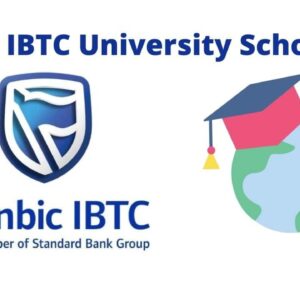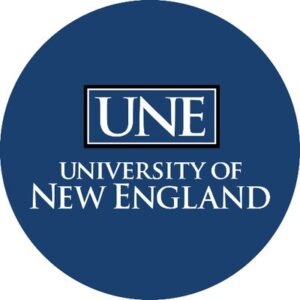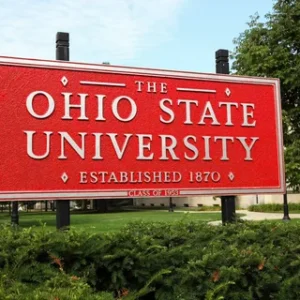Introduction
Accredited?, Nobody wants to spend thousands of naira and four years of their lives on a degree that would ultimately be useless. The risk of slipping into the trap of unaccredited colleges is significant and growing in Nigeria these days due to the growth of private and distance-learning universities. Whether you’re a parent or a student, it’s important to know how to spot fraudulent organizations that are only motivated by profit.
This guide will show you how to choose a safe place to study and ten reliable methods for identifying Nigerian universities that are not accredited for 2025.
Understanding University Accreditation
What is Accreditation?
Accreditation is the official stamp of approval that a university meets the minimum academic standards required by a governing body.
Who Gives Accreditation in Nigeria?
The National Universities Commission (NUC) is the sole authority responsible for granting accreditation to universities in Nigeria.
Role of the National Universities Commission (NUC)
They evaluate university programs, infrastructure, and faculty to ensure they meet Nigerian educational standards. You can check their official website here: NUC Accredited Universities
Consequences of Attending an Unaccredited University
Legal Implications
You might earn a certificate that the government doesn’t recognize.
Academic Validity
Other universities (local and international) won’t accept your degree for postgraduate programs.
Employment Challenges
Most employers in Nigeria and abroad require proof of NUC recognition.
Further Education Restrictions
You may be denied admission into NYSC or master’s programs.
Top 10 Ways to Detect an Unaccredited University in Nigeria
1. Check the NUC Official Website
This is your first stop. The NUC regularly updates a list of all accredited universities. Check here: NUC Universities List
2. Verify with JAMB (Joint Admissions and Matriculation Board)
Any legit university will be on JAMB’s approved list for UTME or Direct Entry.
3. Lack of Verifiable Physical Campus
Be wary of universities that operate entirely online without a traceable address.
4. Too-Good-To-Be-True Admissions Process
If they promise admission without JAMB, WAEC, or standard documentation—run.
5. No NYSC Mobilization for Graduates
NYSC only works with NUC-accredited schools.
6. No Affiliations with Recognized Institutions
Reputable schools often partner with others, either for exchange programs or research.
7. Overuse of Distance Learning Without Approval
Some unaccredited schools hide under the guise of “online-only programs.” The NUC approves only specific schools for e-learning.
8. Certificates Not Recognized Abroad
Degrees from unaccredited institutions won’t pass credential evaluation abroad.
9. Unusually Low Tuition or Fake Scholarships
Some charge outrageously low fees to attract victims. Always verify.
10. Negative Online Reviews and Media Exposure
A simple Google search can reveal red flags or expose previous scandals.
What to Do If You’ve Already Applied to a Fake University
Step 1: Withdraw Your Application Immediately
Cut your losses early.
Step 2: Report the University
File a report with the NUC or EFCC.
Step 3: Apply to a Legit University
Consider using the JAMB CAPS portal to apply to real institutions.
How to Safely Apply to an Accredited University
Always apply via JAMB
Resources to Help You Verify Accreditation
-
JAMB Brochure: ibass.jamb.gov.ng/qr/
-
Nigerian Ministry of Education: https://education.gov.ng
-
Forums like Nairaland
Common Scams to Avoid
-
“UK/Nigerian Hybrid Universities” without NUC approval
-
Buying degrees online from degree mills
Tips for Parents and Guardians
-
Visit campuses
-
Speak with students and faculty
-
Avoid flashy social media ads with little detail
Future of Accreditation in Nigeria
-
NUC is developing digital databases for easier public verification
-
Some tech startups are launching platforms to track fake schools
Real-Life Stories of Victims
Denied NYSC Mobilization
Chinedu (not real name) completed a 4-year program only to find out his school was not accredited—and couldn’t serve NYSC.
Job Loss Due to Fake Degree
Sarah was dismissed from a top firm when HR discovered her degree came from an unaccredited university.
Why This Issue Matters in 2025
With tech advancements and increased online schooling, fake schools are more convincing. This makes vigilance and awareness even more crucial.
Conclusion
Accreditation isn’t just a fancy badge—it’s the foundation for your future. If you fall for an unaccredited university, you’re not just wasting money, you’re potentially jeopardizing your career. Take time to verify every institution before applying. Trust, but always verify.
FAQs
Q1: Can a university be partially accredited?
Yes. Some programs in a school may be accredited while others aren’t. Always check your specific course.
Q2: How often does the NUC update their list?
The NUC updates its accreditation list yearly or when changes occur.
Q3: Can I transfer from an unaccredited to an accredited school?
In most cases, you’ll need to start afresh. Credits rarely transfer.
Q4: Is online learning illegal in Nigeria?
Not at all. But only institutions approved for e-learning by the NUC can offer online degrees.
Q5: Where can I report a suspected fake university?
Report directly to NUC or email the EFCC with evidence.







